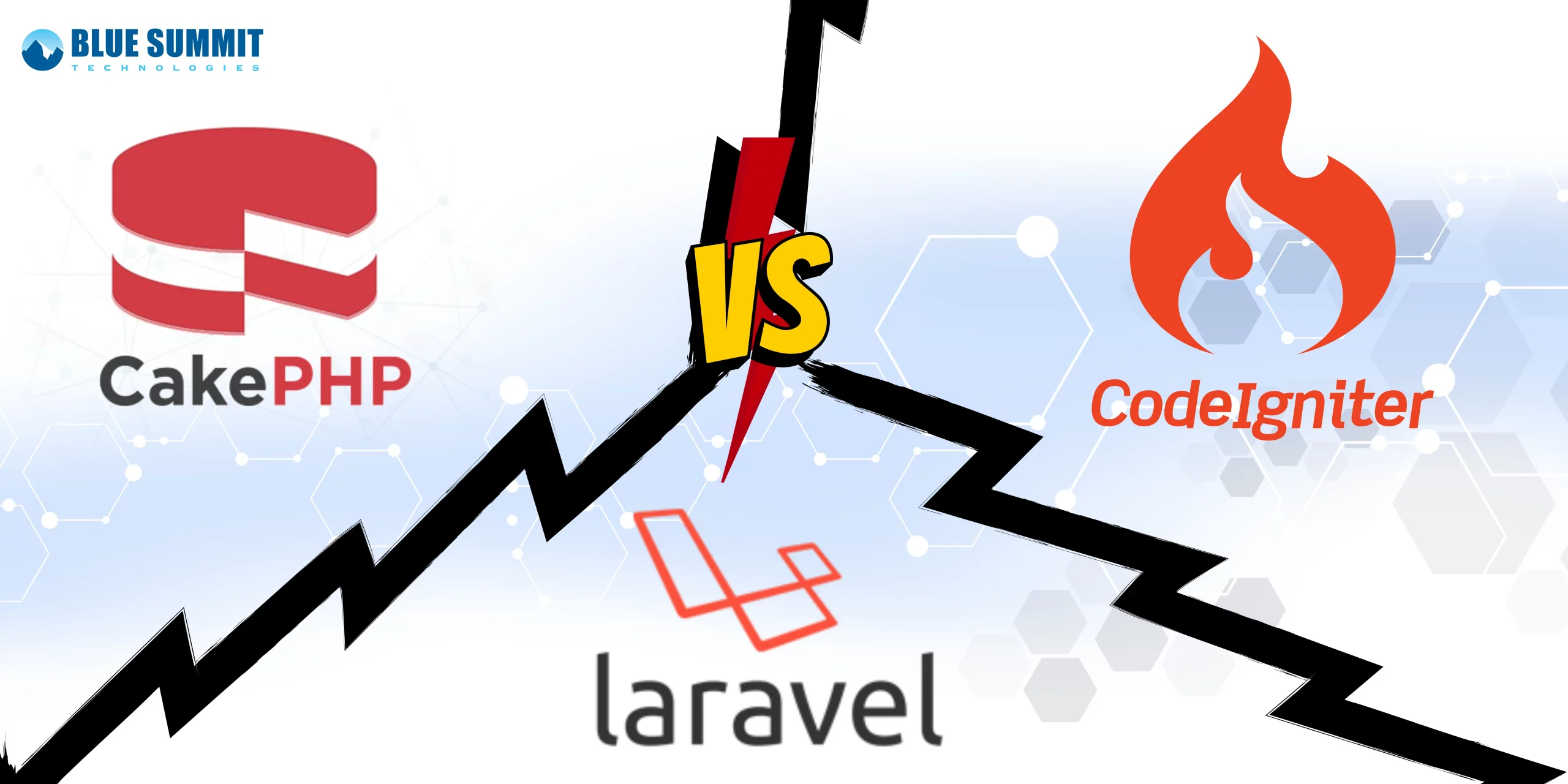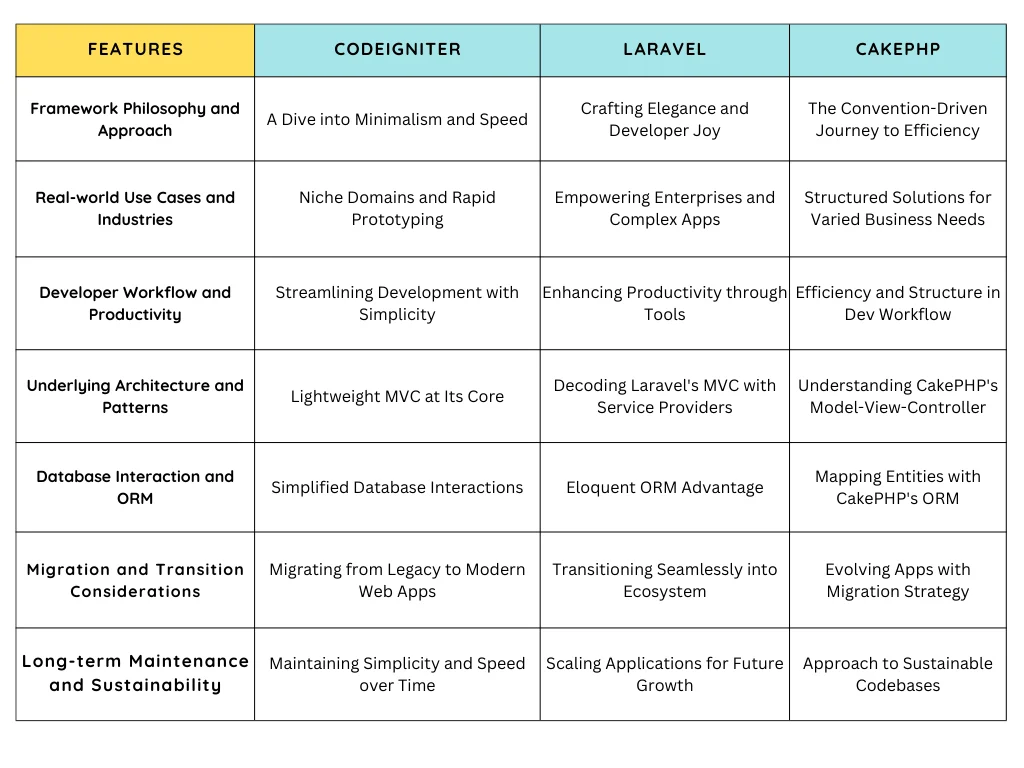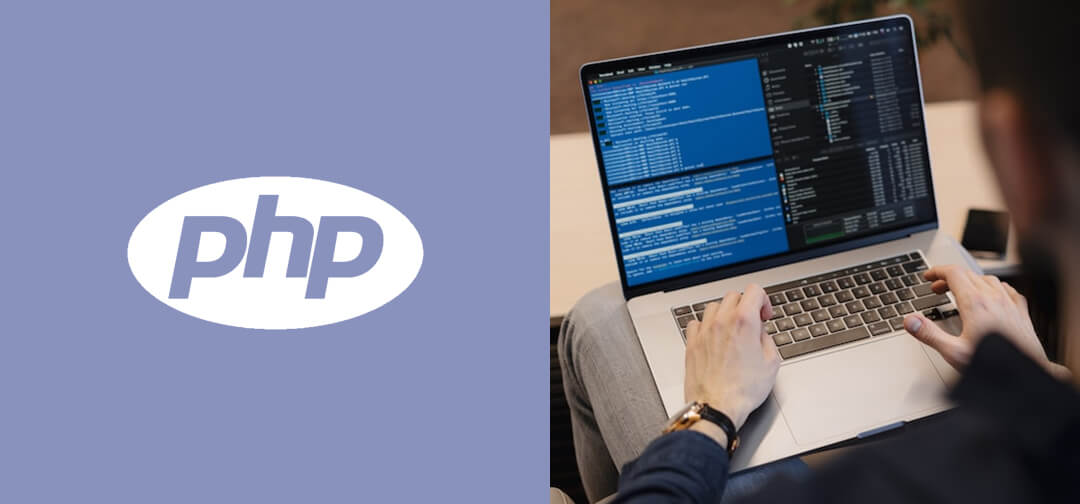
Posted on Saturday, Aug 26th, 2023
PHP Framework Face-off: CodeIgniter, Laravel, or CakePHP
In the vast landscape of web development, choosing the right PHP framework can be a daunting task. CodeIgniter, Laravel, and CakePHP are three popular contenders that have gained prominence for their unique features and capabilities. This blog aims to provide an in-depth comparison of these three PHP frameworks, helping you make an informed decision based on your project's needs.
Engaging in a robust face-off between CodeIgniter vs Laravel vs CakePHP, will grant us valuable insights into their individual strengths. By meticulously examining the advantages presented by each framework in alignment with our specific project requirements, we can confidently proceed with a strategic framework selection that harmonizes with our goals.
Understanding the Contenders of PHP Framework
CodeIgniter
Known for its simplicity and lightweight nature, CodeIgniter focuses on fast development without imposing too many restrictions. It's an ideal choice for small to medium-sized projects that demand agility and rapid deployment.Laravel
Considered the poster child of modern PHP frameworks, Laravel offers an elegant syntax, a rich set of features, and a strong focus on developer experience. It's suitable for projects of varying sizes and complexity, emphasizing code elegance and maintainability.CakePHP
CakePHP is celebrated for its convention over configuration approach, making development smoother by minimizing the need for explicit configuration. It's a great choice for developers who appreciate a structured environment and prefer to follow conventions.Comparing Key Aspects
1. Architecture and Flexibility
CodeIgniter: Offers a simple and flexible MVC (Model-View-Controller) architecture.Laravel: Provides a robust MVC architecture along with built-in tools for tasks like authentication, routing, and caching.
CakePHP: Embraces the convention over configuration philosophy, making it highly structured and intuitive.
2. Learning Curve
CodeIgniter: Has a relatively low learning curve, making it suitable for newcomers to PHP frameworks.Laravel: While its elegant syntax may be more beginner-friendly than some other frameworks, there is a steeper learning curve due to its rich feature set.
CakePHP: Strikes a balance, offering an approachable learning curve without sacrificing advanced features.
3. Development Speed
CodeIgniter: Excels in rapid development, making it a preferred choice for small to medium-sized projects.Laravel: Facilitates rapid development through features like Artisan command-line tools and a robust ecosystem of packages.
CakePHP: The convention-driven approach speeds up development, especially for those comfortable with its structured setup.
4. Community and Ecosystem
CodeIgniter: Although it has a smaller community compared to Laravel, it still offers resources, forums, and extensions.Laravel: Boasts a large and active community, along with a wide array of packages available through Composer.
CakePHP: Has an established community and offers a collection of plugins and extensions for various functionalities.
5. Scalability and Performance
CodeIgniter: Known for its performance due to its lightweight nature, making it suitable for projects with efficiency demands.Laravel: With proper optimization, Laravel can handle larger projects, but its feature-rich nature may impact performance compared to lighter frameworks.
CakePHP: Offers decent performance and scalability, especially for applications that align with its conventions.
6. Ecosystem and Extensions
CodeIgniter: While CodeIgniter's ecosystem may not be as extensive as Laravel's, it still offers a range of libraries, plugins, and third-party integrations that can enhance its functionality. Developers can tap into these resources to extend the framework's capabilities according to project needs.Laravel: One of Laravel's standout features is its vast ecosystem and a vibrant community. The Laravel ecosystem includes Laravel Mix for asset compilation, Laravel Horizon for managing queues, and Laravel Nova for administration panels, among others. The availability of Composer packages further simplifies the integration of various functionalities.
CakePHP: CakePHP's plugins provide additional features that can be easily incorporated into applications. The CakePHP community contributes to a collection of plugins that cater to various needs, from authentication and security to API integration.
7. Community Support and Documentation
CodeIgniter: Although it might have a smaller community compared to Laravel, CodeIgniter still has an active user base that shares knowledge and solutions through forums, Stack Overflow, and tutorials. Its official documentation is concise and well-organized, aiding developers in getting started quickly.Laravel: The Laravel community is renowned for its robust support system. Laravel's documentation is comprehensive, providing clear explanations and examples for each feature. Additionally, Laracasts offers a vast library of video tutorials that cater to developers of all skill levels.
CakePHP: CakePHP's community is dedicated and supportive, offering forums and resources for developers to seek help. The official documentation is detailed, walking developers through various aspects of the framework.
8. Testing and Quality Assurance
CodeIgniter: While CodeIgniter supports testing, it doesn't have built-in tools for testing as comprehensive as those in Laravel and CakePHP. However, developers can implement testing methodologies to ensure code quality.Laravel: Laravel places a strong emphasis on testing through its integrated PHPUnit framework. Developers can write tests to ensure their applications are stable and maintainable, promoting a higher level of code quality.
CakePHP: CakePHP also supports testing and includes its own testing suite. This feature encourages developers to follow best practices and maintain code integrity.
9. Security
CodeIgniter: CodeIgniter's simplicity can be advantageous in terms of security, as the smaller codebase reduces the potential attack surface. However, security measures must still be implemented by the developer.Laravel: Laravel prioritizes security by incorporating features like hashed passwords, SQL injection prevention, and cross-site scripting (XSS) protection out of the box. Its focus on security makes it a preferred choice for applications that handle sensitive data.
CakePHP: CakePHP's conventions help enforce security practices, such as input validation and database query parameterization. It aims to minimize the risk of common vulnerabilities, contributing to the overall security of applications.
Distinct Characteristics and Attributes

Conclusion
Choosing between CodeIgniter, Laravel, and CakePHP ultimately comes down to your project's requirements and your development team's preferences. Each framework has its strengths and weaknesses, catering to different development scenarios. CodeIgniter excels in rapid development, Laravel shines with its feature-rich environment, and CakePHP appeals to those who value convention-driven structure. By understanding these frameworks' nuances, you can confidently select the one that aligns with your vision and project goals.Blue Summit excels in all three PHP frameworks: CodeIgniter, Laravel, and CakePHP. Should you require assistance or guidance related to these frameworks, please do not hesitate to get in touch. We are dedicated to providing comprehensive solutions and look forward to serving your needs.
Blue Summit has collaborated with OdiTek Solutions, a frontline custom software development company. It is trusted for its high service quality and delivery consistency. Visit our partner's page today and get your business streamlined.
REFER TO OTHER RELEVANT CONTENTS

PHP Development
PHP is a server-side scripting language that can also be used as a general-purpose programming language. It was developed for web development. Blue Summit provides world-class PHP development services thanks to its extensive expertise in PHP web development and application development. PHP is the best...
read more







